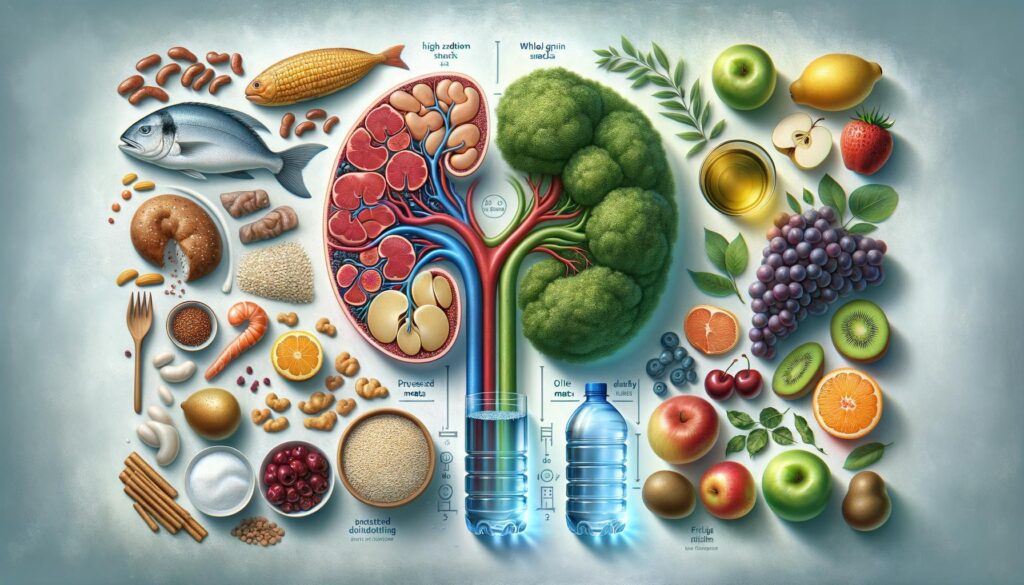Navigating Renal Failure: Foods to Choose and Avoid

Understanding Renal Failure and Nutrition
Renal failure, or kidney failure, disrupts the body’s ability to filter waste and maintain essential balance in minerals and fluids. As the kidneys struggle to perform their regular functions, dietary adjustments become crucial. Foods rich in certain minerals can exacerbate kidney strain, while others can support kidney health. The goal is to find a balance that minimizes stress on the kidneys while ensuring patients receive necessary nutrients. A renal diet is usually lower in sodium, potassium, and phosphorus, limiting their buildup in the blood, which can be harmful.
Foods to Avoid
For those diagnosed with renal failure, certain foods can pose significant risks by aggravating the condition. Foods high in potassium—such as bananas, oranges, and potatoes—should be consumed sparingly. A high intake of sodium, often found in processed and pre-packaged foods, can lead to increased blood pressure and fluid retention, further burdening the kidneys. Phosphorus, found in dairy products, nuts, seeds, and some colas, can lead to bone and heart issues when present in excess. Avoiding these foods can stabilize mineral levels, reducing the risk of complications.
Foods to Include
While there are many foods to avoid, there are still numerous nutritious options that are safe for those managing renal failure. Protein is essential, but the type and amount should be carefully selected. Consider including high-quality protein sources such as eggs, fish, or chicken in moderation, as they provide necessary nutrients without excessive phosphorus. Vegetables low in potassium such as cabbage, cauliflower, and bell peppers are excellent additions to a renal diet. Whole grains, such as quinoa and rice, can also provide necessary fiber and energy without overloading the kidney’s ability to filter waste.
- Eggs
- Fish
- Cabbage
- Cauliflower
- Bell peppers
Fruits to Enjoy in Moderation
Though some fruits are high in potassium and should be avoided, many others can be safely enjoyed in moderation. Apples, berries, and grapes are low in potassium and make excellent choices for those with renal concerns. Berries, in particular, offer antioxidants and vitamins that support overall health. It’s advisable to consult with a healthcare provider to personalize fruit choices and ensure that they fit within the dietary restrictions of kidney failure management. Eating these fruits in appropriate portions can help maintain a sense of normalcy and variety in the renal diet.
Recommended Fluid Intake
Hydration is vital but needs to be carefully managed in renal failure to avoid overburdening the kidneys with excess fluid. Typically, fluid intake recommendations vary significantly depending on the stage of kidney disease, presence of symptoms like swelling, and individual health considerations. On average, limiting fluid intake to match urine output, plus 500ml for insensible losses, is a common guideline. It’s critical to work with a healthcare professional to determine the exact fluid needs based on individual medical conditions and prescribed medications, thereby balancing hydration needs without risking fluid overload.
Conclusion
Managing renal failure through dietary choices is a crucial aspect of treatment that can significantly impact the quality of life. By avoiding certain foods and embracing others, patients can help their bodies maintain a delicate balance necessary for health. While keeping an eye on fluid intake, an appropriate renal diet can alleviate symptoms and prevent complications associated with kidney failure. Regular consultations with healthcare professionals are essential for personalizing dietary plans and ensuring they meet the specific needs of the individual, paving the way for more manageable kidney health.
